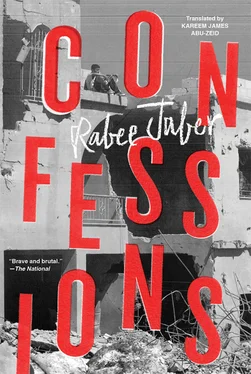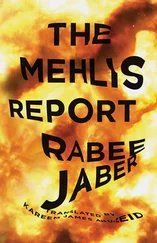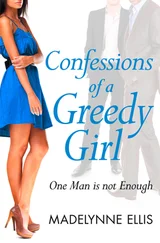Antoine froze in fear, pointing at the woman. Her clothes were tatters, or what was left of tatters: they were muddy and charred black, like pieces of coal, as if they weren’t made of cloth. I saw something green and blue and black swimming in a small pit beside her. The pit was full of a thick and strangely colored liquid, and a small sharp-smelling cloud was rising from the hissing liquid. The woman’s mouth was open, her teeth white against her black mouth.
I don’t know who she was, and I don’t know who killed her and left her there. Maybe she’d been exploring the demarcation line like us when a bullet got her. Or had she snuck in from the other side? I don’t know who she was, I only saw her for a moment or two (I can’t say how long exactly) before Antoine and I started back, we started back without finishing our journey, retracing our steps. We didn’t speak while we walked, we didn’t speak while we ran, we didn’t speak when we started walking again. We didn’t speak at all. We returned to the burned-down house and got our backpacks. We took turns helping each other with the backpacks so the straps wouldn’t break: he helped me put mine on, and I helped him with his. I don’t remember us talking. Maybe one of us said something, but I can’t remember a single word now. There was a point on the road where we went our separate ways: he to his house, and I to mine. I remember that point now: there was an old broken-down car on the side of the road, it was covered in dirt and bird droppings. There’s an acidic substance in bird droppings that eats away at paint: the paint on this car was cracked everywhere, and the whole car was in awful shape, all its tires were flat. A thick layer of dust covered its windows, and we used to write swear words or funny expressions on them. I remember Antoine standing there, by the old car: there were people and other cars and passersby all around us, but we didn’t hear or see any of that. We wanted to hear it, we wanted to see it — but how?
Around the same time we took that trip to the demarcation line, Ilya disappeared from the house. He began going to the front lines a lot, and the first time he came back from the mountain, from Mount Lebanon — while the battles were still going on there — I could tell he was no longer himself. He’d suddenly become like my father. I don’t know how to explain this, it all seems a bit silly, it seems silly that someone could change from one day to the next, or over a couple weeks, the way that… Listen, none of that matters. That’s how Ilya looked when he started going to the lines: he looked like he was no longer himself.
It’s not that he was different around us, or that he became violent (although some time after that, after my mother passed away, he said something horrible to Najwa, and I don’t think Najwa, to this day, has ever forgiven him). No, it’s the opposite: when he came home he’d sit on the bed by my mother’s side and talk to her and run his fingers through her hair. And when we sat down for dinner he’d joke around with Julia and Mary, and with Najwa and Liliane, and with me, and he’d often stand up to get something from the fridge and say, “Each of us should pull our own weight”—he wouldn’t let anyone bring him anything. He never said anything about the battles when we were at the table, and instead, he’d say something like, “We sat at the barricades all day and nothing happened.” But his voice — the tone of his voice, his smile — said something different, that he never sat at the barricades. When my mother joined us for dinner, he always sat beside her, or she’d come and sit by him. He’d feed her and she’d laugh and say, “I’m your mother, don’t you have any manners?” And then she’d kiss his head. She’d kiss his head and he would kiss hers. We rarely saw my father and brother at the same time. We knew they always met up: the two of them met all over the place, but they rarely got together at the house (at our house) during the Mountain War.
Ilya didn’t talk about the war in front of my mother or my sisters, but, later on, I learned he sometimes told things to Julia, and sometimes to Najwa. After he came back home, after he was wounded in the thigh, and after his recovery, I heard a lot of stories from him. Those stories transformed him, once again, before my very eyes: he no longer looked like my father when he spoke. He looked like my father at other times: when he was feeding my mother, or joking around with my sisters, or grabbing a beer from the fridge, opening it and tossing the cap into the sink and turning back toward us. And he looked like my father when he came through the door and set the weapons down on the chair, a smile appearing on his dark, weary face: it was as if Ilya were changing his countenance for our sake. Those were the moments when he looked like my father. But when he told stories about the attacks and the defensive lines, about the raids and the massacres, he no longer looked like my father. He often said that it was similar to what had happened at such and such a place and at such and such a time, and he often brought my father into the story, wanting me to understand that he was just like my father, and that father was just like him, that they were carbon copies of one another…. When he saw I wasn’t listening anymore, or when he noticed he was losing me, he’d change the subject. He’d tell me, for example, that one of his friends had been killed by mistake, he wasn’t killed in any of the battles, but he didn’t notice a roadblock while he was on his way home, half-drunk, and they gunned him down right here: his own friends gunned him down and killed him without realizing who it was. “He always used to tell us he never got drunk, he said he could drink a whole barrel of whisky without getting drunk. Look at the poor guy now.”
Why did his stories unsettle me? Was it the stories themselves? My guess is that it wasn’t the stories, but rather the look in his eyes — yes, I think that’s right. He used to give me a look I didn’t understand. I often saw that look in his eyes, but I never understood why he was staring at me like that. He’d be describing something, for example, and then he’d suddenly focus his gaze on a specific point on my face, burning a hole into me. I’ve told you something like that before. I’m repeating something I’ve already said, aren’t I? I think I am.
That strange feeling stayed with me for years: I was confronted with that same difficult situation at different points in my life, and I could never voice my thoughts. I wanted to ask Ilya, “Why do you look at me like that?” But I didn’t know what to say, I didn’t know how to explain it, and I didn’t know how to stop him from looking at me like that. There was a lot I didn’t know…. I felt that terrifying impotence over and over again. Once I even caught my mother looking at me like that when I wasn’t paying attention. She’d been asleep, or half asleep, and I was sitting on the edge of the bed and reading a book. She always wanted one of us to be there, she didn’t like spending too much time alone in the bed. I was reading my book, and from time to time I’d look up at something on the nightstand (the framed picture of Saint Charbel, the cup of water, the watch with the silver dial and leather band), or I’d look at my mother’s face, sunk in peaceful sleep. I loved that sleeping face, and I loved watching it. A strange calm would come over me whenever I looked at it. I was reading when I felt her gaze bearing down on me: I turned around slowly and saw that strange look. When she noticed I’d seen her, she closed her eyes. I haven’t forgotten that moment. I’ll never forget that moment. Something deep within me broke when I saw that look in my mother’s eyes.
The strange thing is that I never — not in my whole life — saw anything like that in my father’s eyes. Don’t you think that’s strange? Not once did I catch that look in my father’s eyes. Never. Najwa says father’s a mystery, she says she doesn’t love him, she says she really doesn’t love him, but she can’t say she hates him either. “My father’s a mystery,” she says. And she also says: “Your father’s a mystery.” Even though we now know (and she knew from the beginning) that he’s not really my father.
Читать дальше












